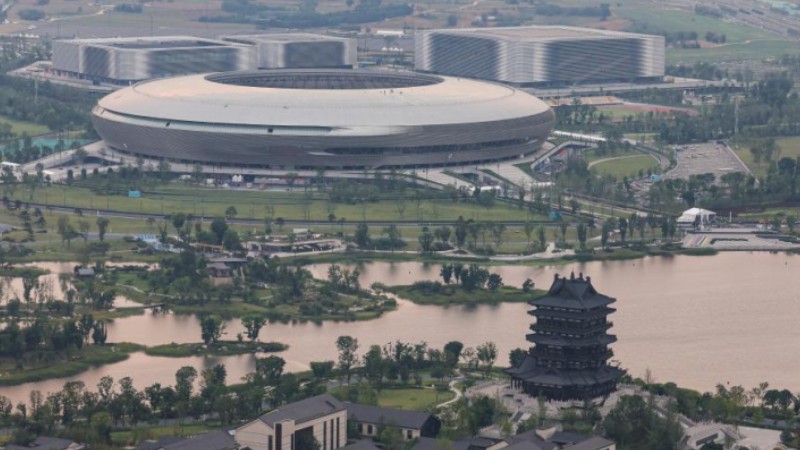Commentary: U.S. history revealed: from IP thief to hypocrite
BEIJING, June 28 (Xinhua) -- In the early days of the founding of the United States, groups of British industrial workers voyaged across the Atlantic to reach the New World, carrying with them invaluable commercial secrets that Britain proudly relied on to maintain its global dominance.
It was blatant intellectual piracy, a practice the founding fathers of the United States embraced to hastily bridge the gap between the fledgling country and its former suzerain.
In the Report on Manufactures in 1791, then U.S. Secretary of Treasury Alexander Hamilton encouraged foreigners to bring to America "improvements and secrets of extraordinary value," promising incentives such as financial rewards and exclusive privileges.
With the sneaky infiltration of advanced mechanical technologies like the cotton loom into the United States, the country quickly seized a competitive edge in manufacturing productivity and established its industrial empire.
But as American historian Doron Ben-Atar wrote in his book "Trade Secrets," "the United States emerged as the world's industrial leader by illicitly appropriating mechanical and scientific innovations from Europe."
Ironically, such a country who initially thrived on theft of technological secrets is now pointing fingers at China, baselessly accusing the latter of violating intellectual property rights (IPR).
Nathaniel Fick, U.S. Ambassador at Large for Cyberspace and Digital Policy, reportedly called for forming a "coalition" to stop China's so-called "stealing of intellectual property" to advance in artificial intelligence and other key technologies.
The allegation lacks ethical grounds. In the misguided mindset of the U.S. government, China's technological and innovative advancements were achieved through illicit and dishonest means, just like the American ancestors did.
It failed to recognize the fact that China has adopted a different and legitimate path of peaceful development featuring high-quality opening-up and win-win cooperation.
The IPR rhetoric is just one of the many disguises that the U.S. employs to conceal its real intention to crack down on emerging economies like China, whom it perceives as a potential threat to its economic hegemony.
In the past when China lagged far behind the United States, the issue of IPR was never brought to the forefront by the U.S. government. Instead, the two countries used to boast extensive cooperation and communication in technology and innovation.
But as the gap narrows between the two nations, the United States has weaponized IPR to repeatedly smear and attack China, with the aim of curbing the development of the fast-growing economy.
This conspiracy against China peaked in 2018, eight years after China became the world's second-largest economy.
Former U.S. President Donald Trump, who claimed that China has infringed on the IPR of U.S. companies, imposed additional taxes on a list of Chinese imported goods and applied restrictions on the entry of Chinese products into the U.S. market.
The policy caused a devastating loss to U.S. companies and individuals, the actual owners of the IPR whose business was intertwined with that of their Chinese counterparts.
In fact, the unilateral allegation of "IPR breach" has been commonly applied by the U.S. government in business negotiations with many countries besides China.
But rather than protect the owners of IPR, the United States used it as an excuse to blackmail and coerce others into making unwilling compromises, forcing them to accept unfair and biased settlements that only served the U.S. interests.
Even some of the U.S. allies were on the list of victims.
In the 1980s, the United States waged a trade war against Japan, the second-biggest economy at that time with a growing trade surplus with the United States.
The U.S. government accused Japan of inadequate protection and enforcement of various forms of IPR, including patents and copyright, which allegedly provided Japan with an unfair advantage in the global market.
Under diplomatic and economic pressure from the United States, the Japanese government signed agreements with the United States that led to a decline in Japanese exports and made the Japanese market accessible to U.S. products.
Consequently, Japan suffered from the burst of huge economic bubbles and deflation, followed by a sluggish economy in the long run.
The groundless accusation of IPR violation reflects the obsolete U.S. Cold War and zero-sum game mentality. Desperately clinging to its fading hegemony, the United States views other rising countries as imaginary enemies and resorts to all means to contain their growth.
The U.S. exploitation of IPR to crush other countries not only is ethically unfair, but also severely threatens global innovative and technological progress, as it impedes cross-border cooperation and technological exchanges.
In today's highly interconnected world, openness and cooperation are key to technological advancement and common prosperity. A staunch supporter and practitioner of IPR protection, China stands ready to build a multilateral global intellectual property governance system that is fairer and more equitable, so as to benefit the well-being of mankind.
Photos
Related Stories
- Chicago's air quality among world's worst due to Canadian wildfire
- Dangerous heat wave continues baking Texas, expanding in U.S. South
- U.S. not prepared for next pandemic as parts of public health systems reliant on "old fax machines": CDC director
- U.S. CDC warns of malaria risks after cases detected in two states
- California law experts criticize U.S. gov't for warrantless surveillance
Copyright © 2023 People's Daily Online. All Rights Reserved.









